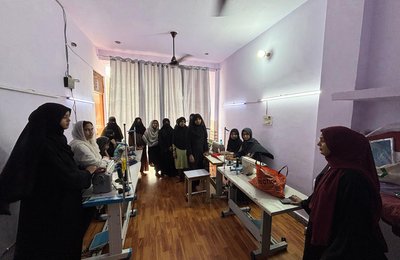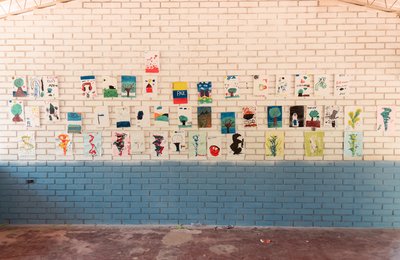Transforming women’s cultural roles into bridges for peacebuilding: Recounting the journey of Mrs Ariet Philip in the Gambella region of Ethiopia
Located in Southwest Ethiopia, Gambella is a region with multiple layers of conflicts, including the protracted Anywa-Nuer conflict. Competition over resources such as water and land have been a major cause of conflicts between the two communities: the Nuer, traditionally pastoralists and the Anywa, traditionally farmers.
But with introduction of ethnic federalism in 1991 in Ethiopia and transformation of Gambella into a regional state, competition over resources was transformed into competition over dominance for the regional state politics. Moreover, the influx of South Sudanese refugees to Gambella since the outbreak of the second Sudanese civil war in 1983 has added fuel to an already burning fire in the region.

Impacts of conflicts on women
Mrs Ariet Philip is one of the first educated women from the indigenous peoples in Gambella. Her passion has always been to work on grassroots women empowerment. Hence, she left her prestigious position as gender equality advisory to the regional council to work with faith-based organisations where she can interact with grassroots women groups on daily basis.
This work highlighted the serious impact of the local conflicts on women. Ariet said, “While women contribute nothing to conflicts, they often end up paying the heaviest price during conflict.”
The nature of conflicts in Gambella make any movement a very risky business. The cultural roles of women, such as collecting firewood, fetching water, or going to the market on daily basis, make them easy target. Crossing one street onto opposite side could mean instant death. But women have no choice – if they do not cross streets to go to market, it would mean starvation for the family. So, women must, as much as possible, creatively navigate their daily activities. For Ariet, this demonstrated that women are not just victims during conflicts, but they can be a force for peacebuilding.
For example, to address the danger they faced at markets, women created informal fish markets without physical contact. In this market, people stand on opposite sides, sellers put price on their fish and move back to their position. The buyer on the other side would come and place the money next to fish and take the fish, then the seller would come and take the money. Both would go away with what they wanted without risking their lives. This market created some trust among women from different ethnic groups, who then continued to trade even during active conflicts. It also facilitated information sharing among women groups from opposite sides, serving as a local conflict early warning mechanism.
Transforming women’s roles as peacebuilders
To strengthen women’s participation in peacebuilding, Ariet and others after received training on peacebuilding, they established ‘Gambella Women Inter-Religious Peacebuilding Council.’ The members are made up of women from all ethnic groups in Gambella, from all walks of life, who are committed to be ambassadors of peace in the region. Ariet was elected as the Chairwoman of this group. The mission of the group is simple – to encourage women to live in peace with one another and enhance their role and influence in peacebuilding processes.
The first action this group took was to transform women’s coffee ceremonies into space for peace dialogue. The coffee ceremony is a major tradition in Ethiopia. In Gambella, after lunch women from same neighbourhood get together to drink coffee in group. They rotate the ceremony from one house to another. Traditionally, this is a safe space for women to rest and freely discuss their affairs.
Ariet and her team transformed this tradition into space for peace dialogue. These became known as Peace Coffee Ceremonies, and many neighbourhoods started to invite Ariet’s team to their group. These dialogues helped build trust among women and boosted their confidence to talk in bigger peacebuilding events.
This team also started to advocate for inclusion of more women in ongoing peace processes – including national dialogue and transitional justice processes. Ariet recalled two occasions where she was invited for a peace conference at the regional council and found herself to be the only woman in the room. She insisted that more women should be called in before they start the meeting, and urgent phone calls were made to ensure their participation at that very event.
Ariet said, “I feel that the work we do compared to the level of violence wrecking Gambella region is a drop in an ocean. But at least, we have created a small space for women to talk and act. We hope we could expand this space among many women and beyond women.”
But, like many grassroots peacebuilders, they face a significant challenge: “Unfortunately, we do not have any support for this work. Monthly contributions from our members are dwindling as the time goes on. We need more people and organisations to stand by us.”






